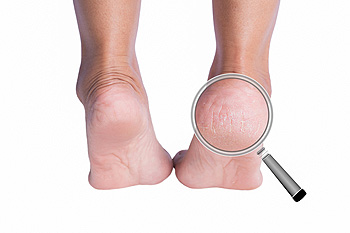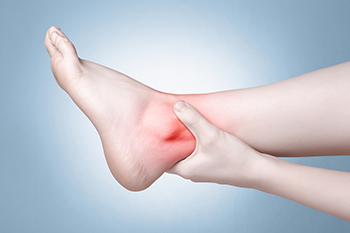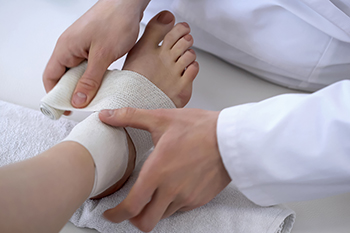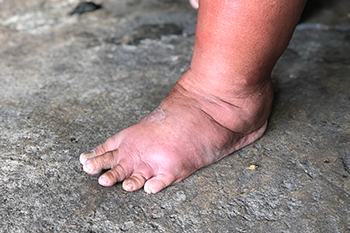
Cracked heels are a condition that occurs when the heels of the feet do not receive sufficient moisture. As a result, the skin on the heels can grow hard and develop cracks or fissures. There are many treatments that your podiatrist might recommend to treat your cracked heels, which largely depends on your case. One potential remedy that your medical professional might suggest to treat your cracked heels is known as petroleum jelly. This substance will be able to lock moisture into the damaged skin on the cracked heels. The substance is gelatinous in texture and can be used on the skin. One might apply petroleum jelly to the feet by rubbing the jelly onto the feet at night and then wearing socks over the feet to lock in the moisture. If you are unsatisfied with the condition of your feet, contact a podiatrist today.
Cracked heels are unsightly and can cause further damage to your shoes and feet. If you have any concerns, contact one of our podiatrists from InStride Family Foot Care. Our doctors can provide the care you need to keep you pain-free and on your feet.
Cracked Heels
Cracked heels appear unappealing and can make it harder for you walk around in sandals. Aside from looking unpleasant, cracked heels can also tear stockings, socks, and wear out your shoes. There are several methods to help restore a cracked heel and prevent further damage.
How Do You Get Them?
Dry skin is the number one culprit in creating cracked heels. Many athletes, walkers, joggers, and even swimmers suffer from cracked heels. Age and skin oil production play a role to getting cracked heels as well.
Promote Healing
Over the counter medicines can help, especially for those that need instant relief or who suffer from chronic dry feet.
Wear Socks – Wearing socks with medicated creams helps lock in moisture.
Moisturizers – Applying both day and night will help alleviate dryness which causes cracking.
Pumice Stones – These exfoliate and remove dead skin, which allows for smoother moisturizer application and better absorption into the skin.
Change in Diet
Eating healthy with a well-balanced diet will give the skin a fresh and radiant look. Your body responds to the kinds of food you ingest. Omega-3 fatty acids and zinc supplements can also revitalize skin tissue.
Most importantly, seek professional help if unsure how to proceed in treating cracked heels. A podiatrist will help you with any questions or information needed.
If you have any questions, please feel free to contact our offices located in Concord, Charlotte, and Salisbury, NC . We offer the newest diagnostic and treatment technologies for all your foot care needs.





